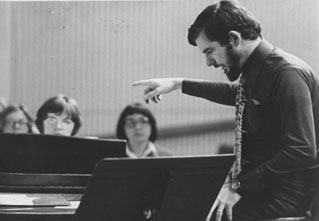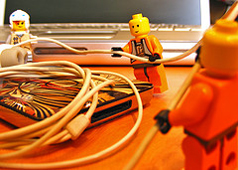This month would have been my dad’s 105th birthday, and, over the course of this month, I’m talking about some things that he taught me. I don’t remember my dad ever sitting me down and saying “”Listen up…you need to learn this…” He taught by his life example, and a lot of the things on my list are things that were just clear in how he went about living. I “learned something new every day” I spent with my dad, particularly as I got older and started paying more attention. But at the same time, I am very aware of things that I learned early, because that’s just how things were. To start from the beginning of this series of posts, click here.
Last time, I wrote about how my dad stayed active to stay healthy. For this last post, I want to talk about something that seems to matter less and less to more and more people: history.
As I have mentioned elsewhere, my dad left school during the 8th grade in order to help support his family. He regularly expressed regret that he didn’t get to go to school, yet (and this was pre-internet, mind you) he systematically educated himself about almost everything — or at least it seemed that way. And he made his own mind up and drew conclusions about what he learned. One of the classic examples of this played out when my mother went to the doctor…which she did far too often.
Mom suffered from a severe psoriatic condition, and that — and especially the medicine she took — weakened her immune system, which meant she had other health issues. My dad would go to the doctor with her, and it got to the point when her physician, in all seriousness, would ask my dad for his medical opinion, based upon my dad’s observation of my mom’s symptoms, and my dad’s visits to the medical library of the local college.
So what, you say? What I learned in the process was that education, in isolation, was just knowledge, so to speak. But placing it in context, especially historically based context, gave a perspective that allowed a person to make critical judgements about that knowledge.
In these days of “anything on the internet must be true,” that perspective is quite helpful. It allows you to recognize the “big lie” that gets repeated without discernment, and it allows you to predict, with some degree of accuracy, what the cause of certain cultural “symptoms” might be, and how to apply therapy, if necessary.
This is extremely valuable in leadership, because history does repeat itself. Understanding what happened in France in the 14th century, or last week in Hong Kong, can be extraordinarily useful when you are managing people and projects.
Particularly people, because even though almost everything else has changed, human nature, at some level, reverts to genetic muscle memory — and I do NOT mean that as a racial, gender, theological, or any other kind of stereotyping. Rather it is more: “You must remember this…the fundamental things apply, as time goes by…hearts full of passion, jealousy and hate…it’s still the same old story, a fight for love and glory, a case of do or die…”
And isn’t that important in leadership? Being a leader doesn’t mean leading things…it means, eventually, leading people. And my dad taught me that if you don’t pay attention to history, you end up just making it up as you go along…
What do you think? Is history important? Please leave a comment and let me know.
Ipod shuffle status (What is this?): 4360 (Sojourners Battle Hymn – Sweet Honey in the Rock) of 7875
…
Get my EBook The Choir in Modern Worship












You must log in to post a comment.